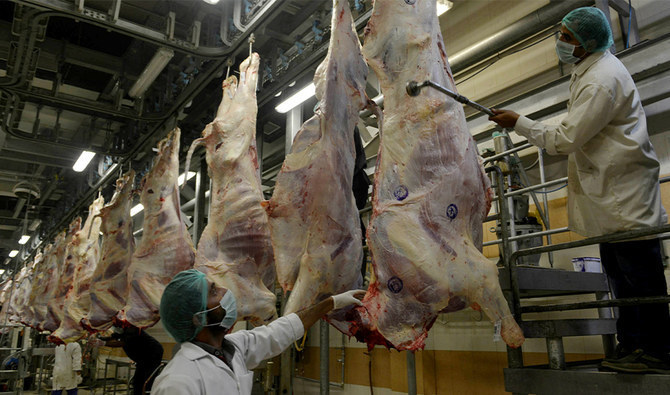KARACHI: The Saudi Agricultural and Livestock Investment Company (SALIC) is in talks with Pakistan’s The Organic Meat Company Limited (TOMCL) to acquire around 30 percent stakes in the Karachi-based halal meat processor and exporter, according to a top TOMCL official and a stock filing.
SALIC, a joint stock company owned by Saudi Arabia’s Public Investment Fund, has conveyed its interest in acquiring TOMCL shares, according to the stock filing by the TOMCL on Wednesday.
The Saudi company has appointed PricewaterhouseCoopers (PWC), one of the world’s ‘Big Four’ accounting firms, along with Deloitte, EY and KPMG, to conduct a due diligence of the Pakistani halal meat processor and exporter.
On Sunday, the TOMCL founder and CEO, Faisal Husain, told Arab News that the developments were still in the “discussion phase” and any decision would be aimed at securing a better future of the company.
“Whatever the company decides would be for its brighter and stronger future and the public would be informed accordingly,” Hussain said.
Through the regulatory filing at the Pakistan Stock Exchange on Wednesday, the TOMCL informed shareholders that “the proposed investment is currently in a discussion phase and no binding arrangements of any kind have been agreed with SALIC.”
Among other things, the proposed investment will be subject to an agreement on commercial terms and conditions, and obtaining all applicable internal and external approvals.
Keeping the TOMCL’s current market capitalization in view, its 30 percent shareholding translates into around Rs909 million ($4.1 million).
The TOMCL, one of the largest processors and leading exporters of red meat as well as by-products in Pakistan, is already supplying chilled beef to Middle Eastern countries, including Saudi Arabia, United Arab Emirates, Bahrain, Oman, Qatar and Kuwait.
In May, it became the first Pakistani entity to export pet food to Europe and the United States.
The company had a turnover of Rs4.65 billion ($21 million) in the last fiscal year and earned a net profit of Rs411.4 million ($1.8 million), up by 35.5 percent, as compared with the previous year.
Following reports of a Saudi firm acquiring stakes in the TOMCL, the price of the company’s shares has increased from Rs20.60 since Tuesday to Rs24.65 on Friday.
















